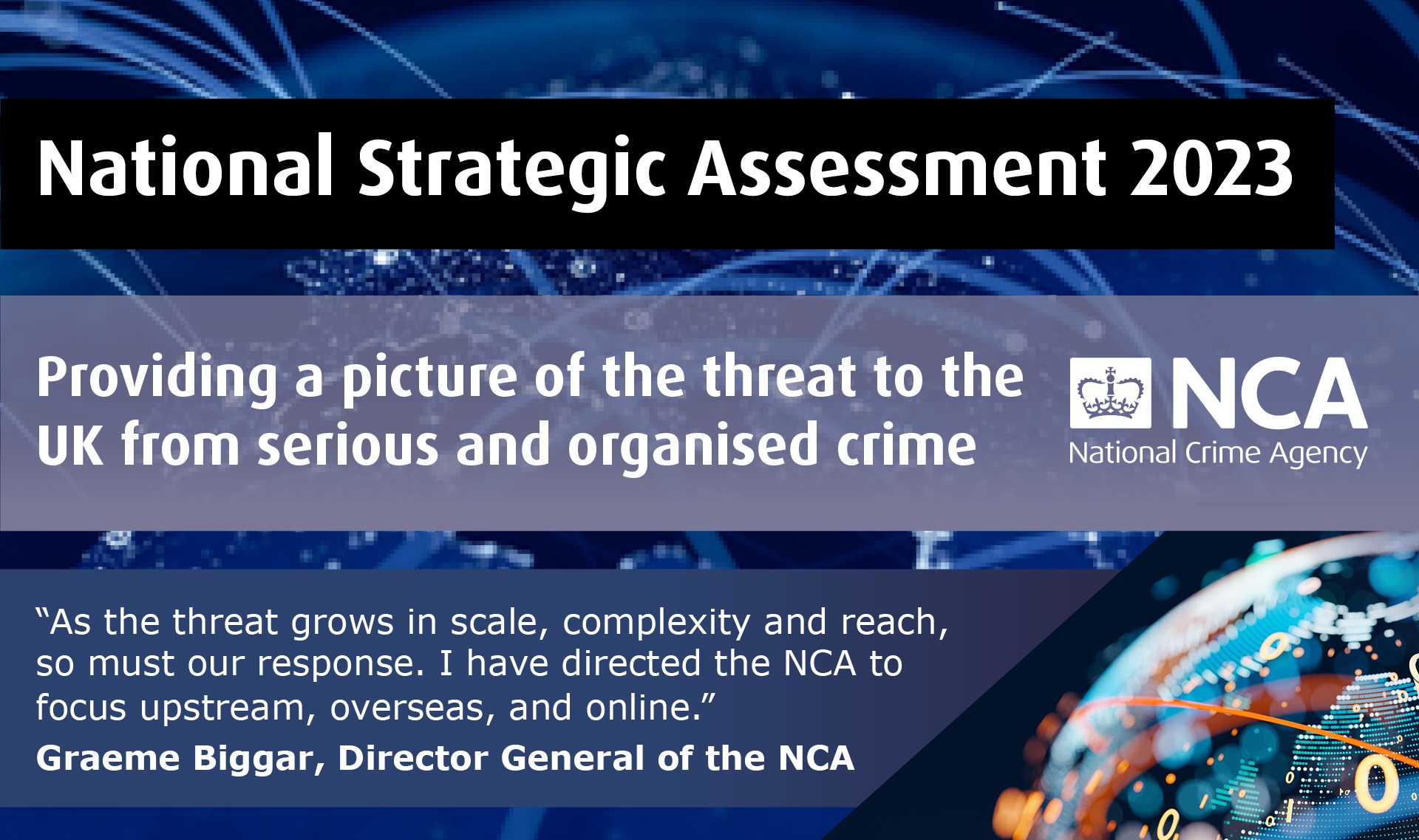NCA delivers National Strategic Assessment

Above:
Graeme Biggar, Director General, National Crime Agency (NCA).
Courtesy NCA
Established in 2013 and celebrating its 10th anniversary this year, the Agency has two core funtions. The primary one to reduce crime, with the second being a ‘criminal intelligence’ function, to gather, analyse and disseminate intelligence, including making assessments and ensuring the country fully understands the scale of the threat from serious and organised crime and how it is changing. It is in support of that second function that the NCS has published this National Strategic Assessment of serious and organised crime for 2023.
It draws on intelligence and analysis from across law enforcement and partner organisations in government, the private sector, academia and civil society, plus it sets out what the public can do to reduce the risk of being a victim or to spot and report suspicious activity.
Along with the more detailed, classified assessments the NCA produces, it ensures a collective response - across policing, the intelligence agencies and other law enforcement partners and in Government - is based on the very latest evidence and understanding.
Speaking in Westminster yesterday, the NCA Director General painted a stark picture of the threats facing the UK.
He highlighted some of the key points from the National Strategic Assessment, including the evolving threats being faced and the responses being made to address them. He said: "It is a tragic fact that serious and organised crime causes more harm, to more people, more often, than any other national security threat."
On organised crime groups' use of technology, he said: "Most fundamentally they have exploited the advances in technology that have benefited us all but also criminals. Technology that allows criminals to scale their activities more easily; allows them to operate against people in the UK from anywhere in the world and allows them to do so anonymously, be it selling drugs and guns on the darkweb, communicating on encrypted apps, or laundering money through cryptocurrency. Crime online has become our new frontline.
"Some of the most sophisticated online crime takes the form of ransomware. The biggest threat continues to come from Russian language cyber crime groups, who are tolerated by, and sometimes linked to, the Russian state."
His final point on the threat was to highlight the emerging links between serious and organised crime and hostile states: "North Korea has for some time used cyber crime to steal funds and more recently crypto currency. The Russian state has long tolerated and occasionally tasked the cyber crime groups on its territory, and had links with its oligarchs and their enablers. And over the last year we have begun to see hostile states beginning to use organised crime groups – not always of the same nationality – as proxies. It is a development we and our colleagues in MI5 and CT Policing are watching closely."
He also outlined the nature of the whole system response led by the Home Office, who set the overall strategy (alongside their counterparts in Scotland and Northern Ireland) and by the NCA, responsible for leading the operational response, plus the enormous range of organisations and agencies that play a key operational role, including the Police, HMRC, the Serious Fraud Office, Immigration Enforcement and Border Force.
To read the National Strategic Assessment 2023, click here: https://nationalcrimeagency.gov.uk/nsa
Graeme concluded his speech by saying: "If technology is driving the threat, then it also needs to drive our response. This means two fundamental changes are needed. Law enforcement, including the NCA, needs to do more to be at the leading edge of new technology: this will require collective vision and sustained investment. And secondly we need more effective strategic partnership from technology companies."














